Evaluations
We independently and objectively evaluate indigent defense systems using Sixth Amendment case law, local and federal laws, and national standards as our guides. We do so only when asked by the jurisdiction. Our methodology includes legal research and analysis; data collection and analysis; court observations; and interviews with criminal justice stakeholders and policymakers.
-
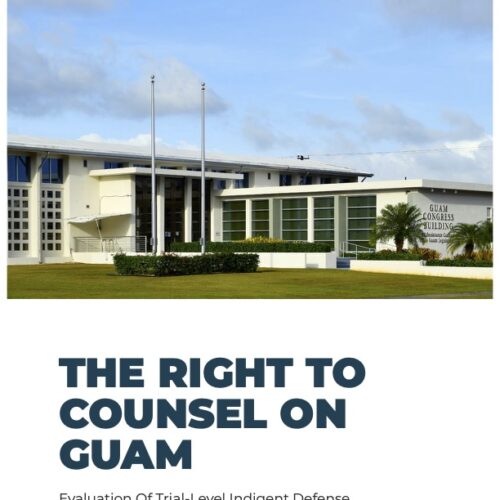 March 2024
March 2024The Right to Counsel on GuamEvaluation of Trial-Level Indigent Defense Representation In Adult Criminal Cases
-
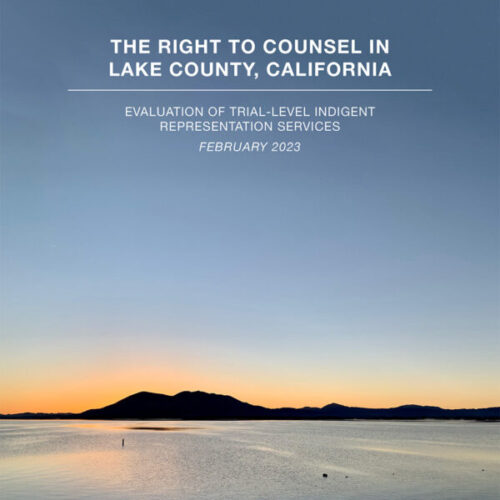 February 2023
February 2023The Right to Counsel in Lake County, CaliforniaEvaluation of Trial-Level Indigent Representation Services
-
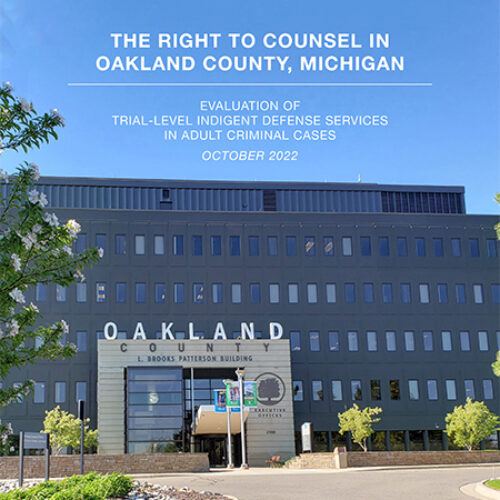 October 2022
October 2022The Right to Counsel in Oakland County, MichiganEvaluation of Trial-Level Indigent Defense Services in Adult Criminal Cases
-
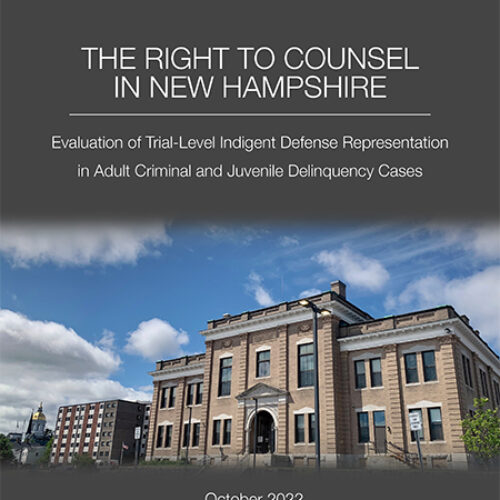 October 2022
October 2022The Right to Counsel in New HampshireEvaluation of Trial-Level Indigent Defense Representation in Adult Criminal and Juvenile Delinquency Cases
-
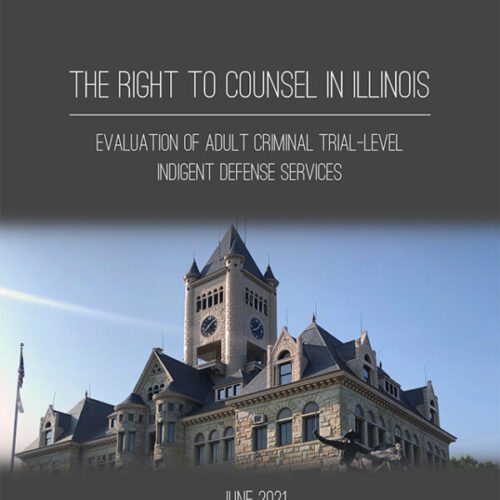 June 2021
June 2021The Right to Counsel in IllinoisEvaluation of Adult Criminal Trial-Level Indigent Defense Services
-
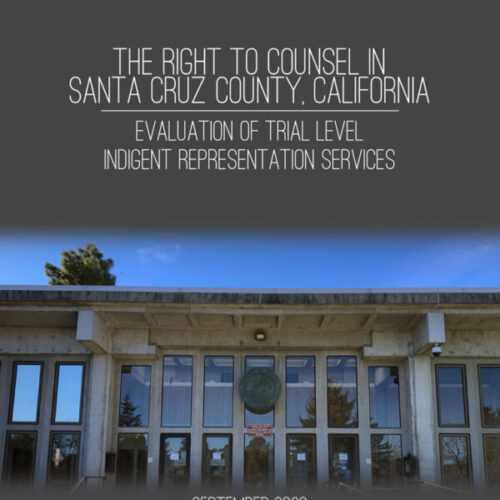 September 2020
September 2020The Right to Counsel in Santa Cruz County, CaliforniaEvaluation of Trial Level Indigent Representation Services
-
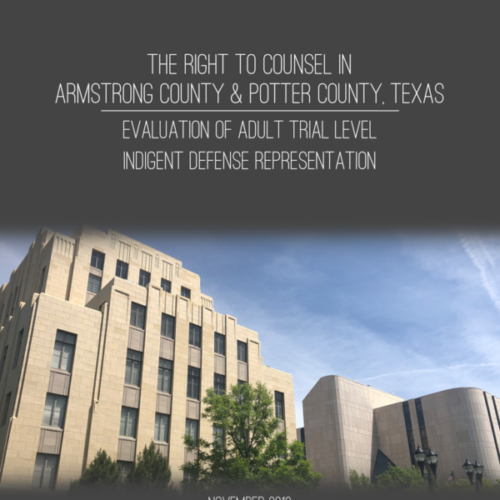 November 2019
November 2019The Right to Counsel in Armstrong County & Potter County, TexasEvaluation of Adult Trial Level Indigent Defense Representation
-
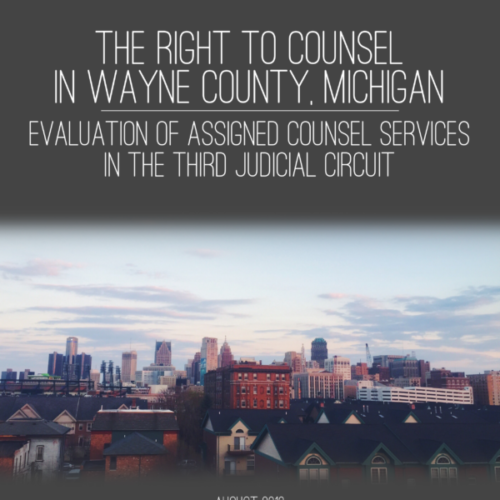 August 2019
August 2019The Right to Counsel in Wayne County, MichiganEvaluation of Assigned Counsel Services in the Third Judicial Circuit
-
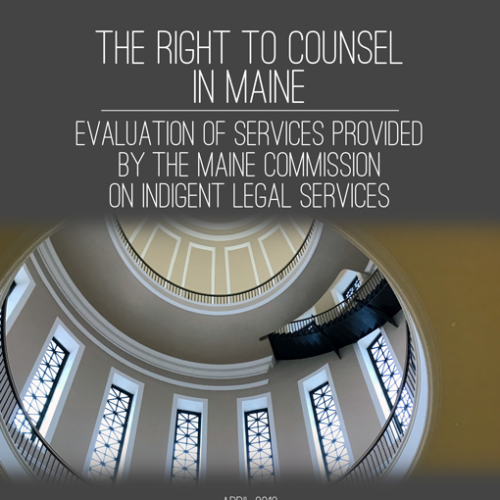 April 2019
April 2019The Right to Counsel in MaineEvaluation of Services Provided by the Maine Commission on Indigent Legal Services
-
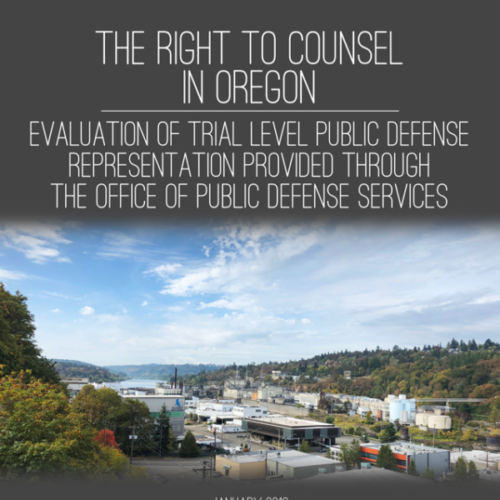 January 2019
January 2019The Right to Counsel in OregonEvaluation of Trial Level Public Defense Representation Provided Through the Office of Public Defense Services
-
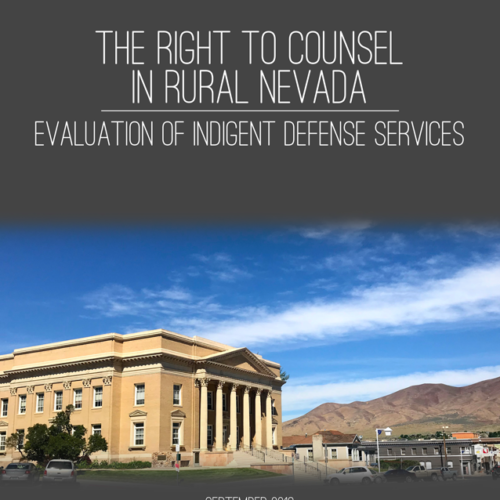 September 2018
September 2018The Right to Counsel in Rural NevadaEvaluation of Indigent Defense Services
-
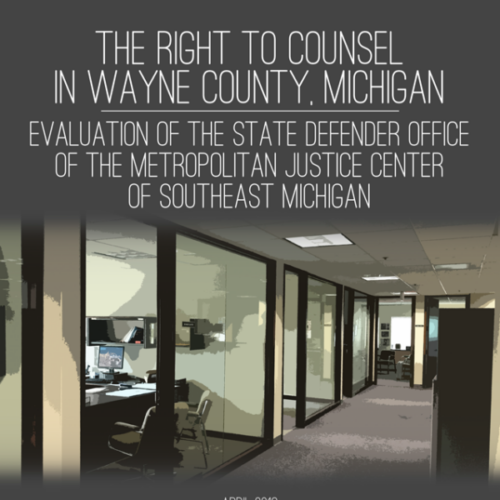 April 2018
April 2018The Right to Counsel in Wayne County, MichiganEvaluation of the State Defender Office of the Metropolitan Justice Center of Southeast Michigan
Support Our Work
Criminal justice issues that disproportionately harm poor people, such as wrongful convictions and over-incarceration, cannot be fixed if indigent defendants are given attorneys who do not have the time, resources, or qualifications, to be a constitutional check on government. Yet, investment in improving indigent defense services remains largely neglected. The Sixth Amendment Center is the only nonprofit organization in the country that exclusively examines, uncovers, and helps fix the root of the indigent defense crisis in which inequality is perpetuated because poor defendants do not get a fair fight.
The Sixth Amendment Center is a tax-exempt 501(c)(3) nonprofit organization under EIN: 45-3477185.
Donations are tax-deductible to the fullest extent allowable under the law.